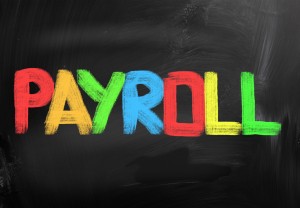Achieve financial goals
Setting financial goals helps you take control of money and your life, but how do you achieve this? Your goals can be as simple and short term as you like, but it’s also worth including some long term ones to help you achieve your goals. Setting goals helps you to identify priorities, giving you a better idea of what you’ll need to do on a daily basis. Your goals should be meaningful to you, so take the time to think about what you want out of life.
How to set your goals
Be specific, realistic, and write down your goals. Keep each one simple and be SMART:
S – Specific – outline exactly what you want to achieve
M – Measurable – how you will quantify your progress as you go
A – Achievable – it must be something that you can achieve, even if it’s a bit of a stretch
R – Realistic – again, it must be something you are capable of actually achieving given the resources you have available
T – Timeframe – set a deadline as committing to meeting it is how you get things done
- Set some big goals – like buying a home in the next five years or saving for your retirement (this could be your biggest goal of all).
- Set some smaller goals to help you get there – like saving for a deposit or paying off your credit cards.
Saving and paying off debt
Some common financial goals include paying off debt and building up your savings.
- If you have a high interest debt such as credit card or hire purchase arrangement, your main goal should be to pay it off first and as quickly as possible. This could involve restructuring your debt into lower interest loans, transferring the balance of high interest credit cards to an interest free option and setting a goal to pay it off before the end of the interest free period.
- Having an emergency account with two to three months income in it can help you and your family if anything unexpected happens. It’s a good idea to keep this account separate from your normal everyday bank account so you are not tempted to dip into it.
- If you have a mortgage and can afford to increase your repayments, do so. By simply overpaying each month you can save thousands in interest and pay off your loan early. It’s also a good idea to have an account where you can redraw any overpayments. You could keep your emergency savings in here, reducing the interest you pay on your loan.
- The earlier you start saving for your retirement the better. Even a small amount saved every week or month can add up to a lot over time.
Actions to achieve your financial goals
Having goals is great, but unless you take action to achieve them they are worthless. For example:
- If your goal is to save for a house deposit, your action may be to open a savings account by next pay day and deposit $50 a week into this new account.
- If you pay your mortgage monthly, your goal could be to change to fortnightly repayments of at least half the amount you were paying each month. This will pay off your mortgage faster and save on interest.
Review your goals
Set a regular reminder in your diary or calendar to review your progress. When you achieve financial goals, celebrate then set yourself a new one!
New Year is a great time to think about your goals – write them down!
Tip: Research shows that if you write down your goals and review them regularly, you’re more likely to achieve them.
If you would like to talk to the team BSN & Co. We can help you plan and achieve your financial goals.







Comments are now closed for this article.